Ocean literacy is about understanding how the ocean affects us and how we affect the ocean. But why is our ocean literacy so limited? And how can we improve it? BalticWaters has dived into the issue and talked to scientists and experts working to increase knowledge and our emotional connection to the sea.
Most of us know that different types of human activities leave a mark on the environment. The ongoing climate change has contributed to an increased awareness of the role of forests in greenhouse gas emissions, for example. And when species that provide important services to humans become extinct or decline in number, the link between humans and nature’s services becomes clear.
But what does our understanding of the ocean and its services look like?
– Many people have a limited understanding of how we affect the Baltic Sea and how dependent we are on the sea in many different ways, says Michael Palmgren, Director of the Marine Education Centre in Malmö.
Michael has long worked to engage the public and spread knowledge about the sea. One concept that has become central to him is ocean literacy – a relatively new concept that in recent years has gained an increasingly prominent role in marine environmental work. Ocean literacy means understanding how we affect the ocean, but also the importance of the ocean, its resources and services to us.
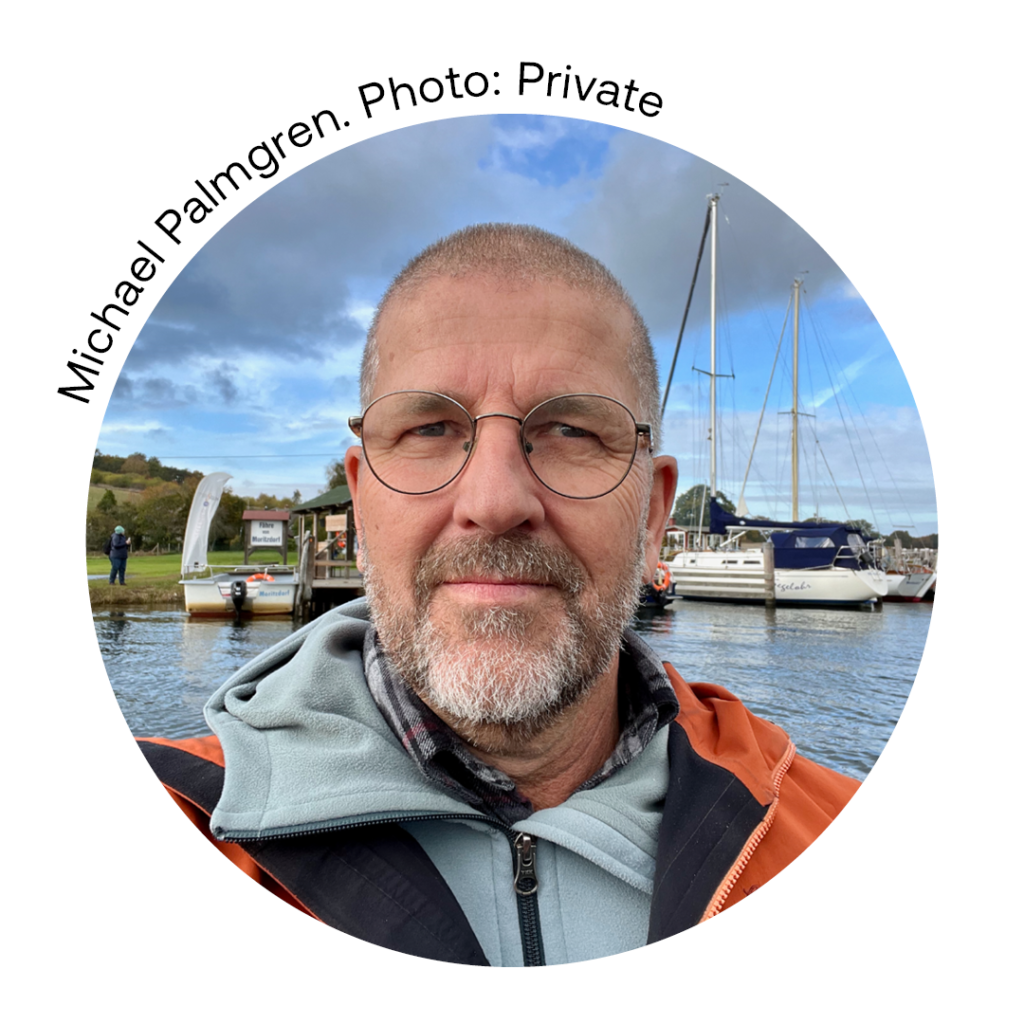
That ocean literacy is important may seem obvious, but to understand the concept’s function and why awareness of our oceans is so low, we need to take a step back.
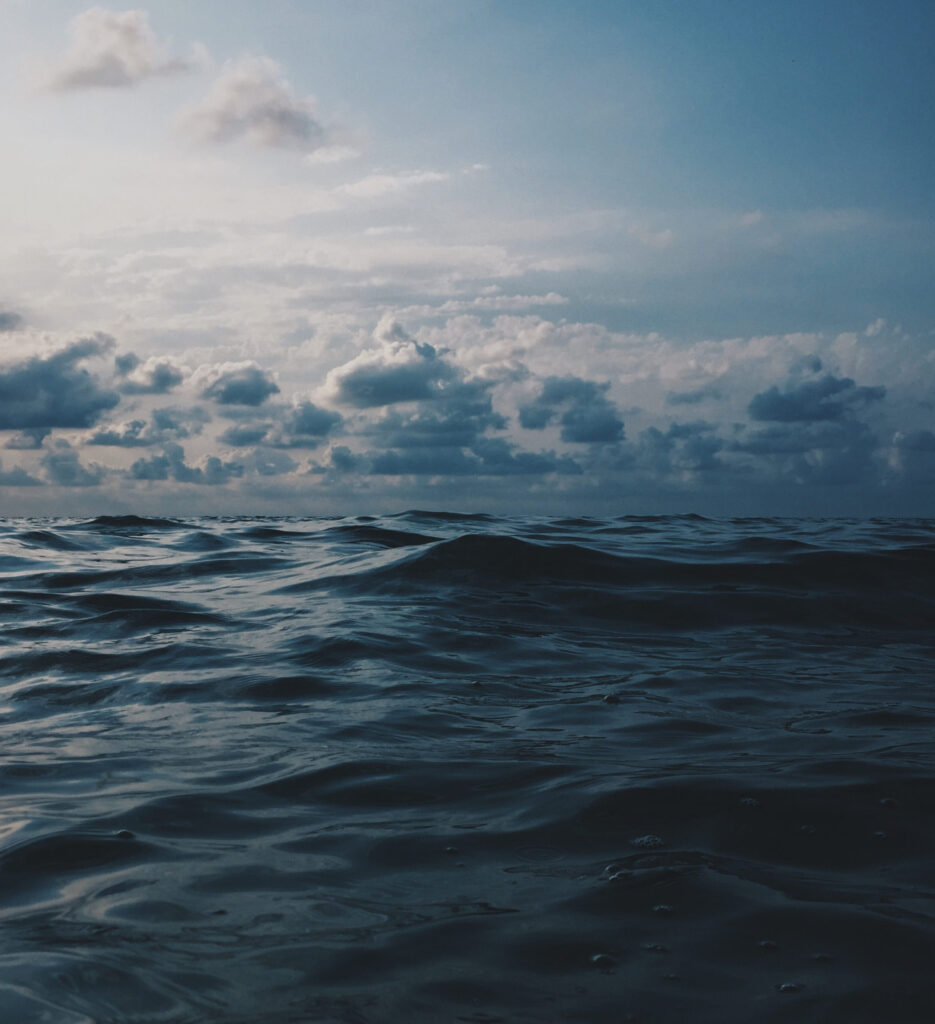
The seven principles of ocean literacy
Ocean literacy is based on seven principles. An ocean literate person not only understands the principles, but is also able to communicate about the ocean in a meaningful way and is able to make sustainable, knowledge-based decisions about the ocean and its resources.
1. The Earth has one large ocean with many features
2. The ocean and marine life shape the characteristics of the Earth
3. The ocean has a major influence on weather and climate
4. The ocean makes the Earth habitable
5. The ocean enables a great diversity of life and ecosystems
6. The ocean and humans are inextricably linked
7. The ocean is largely unexplored
Source: National Marine Educators Association
Ocean literacy puts marine environmental issues on the agenda
Ocean literacy was initially a purely educational tool to increase understanding of the ocean. It emerged in the United States in the 2000s as a reaction to the virtual absence of ocean-related education in schools, despite the ocean’s critical importance to the Earth’s climate and ecosystems.
But while the concept itself is new, efforts to raise awareness about the ocean are longstanding. So what function does the term itself fulfil?
Kajsa Tönnesson, director of the Swedish Institute for the Marine Environment, says ocean literacy is needed to bring about the changes needed to protect our seas. Originally an educational tool, ocean literacy has evolved evolved over time into a broader strategy that accelerates change in the way the ocean is valued, understood and managed by society.
– Ocean literacy points to why this understanding is needed to make informed decisions that help us protect and conserve our oceans, she says.

UN Decade of Ocean Science and Sustainable Development
A UN Decade is a ten-year period established to mobilise resources and promote international cooperation on a global issue. The Decade of Ocean Science runs from 2021 to 2030 and is implemented in the framework of the UN Convention on the Law of the Sea. The overall objective is to reverse the negative trend in the state of the oceans and improve conditions for the sustainable development of marine environments.
In Sweden, four focus areas have been identified for the work during the decade: ecosystem-based management, innovation and digitalisation, data and modelling, and ocean literacy.
Source: Formas
And the concept has quickly caught on. In Sweden, ocean literacy became a focus area in connection with the UN Decade of Ocean Science for Sustainable Development (2021-2030). Kajsa, who sits on the national committee for the decade, has been involved in setting the direction. A key point there has been to encourage the government to develop a national strategy to strengthen ocean literacy.
– Ocean literacy need to permeate the whole of society – from policy and education to business and community engagement. A national strategy is an important step in the right direction, explains Kajsa.
The importance of language for the direction of work
Michael Palmgren, Director of the Marine Education Centre, was involved when the English concept of ocean literacy was formally introduced into the Swedish marine administration. The responsible authorities first considered the translation “ocean knowledge”, but Michael put his foot down.
– Knowledge is something you get when you’re already interested, but for those who don’t yet have an interest, the first step is to become aware, says Michael, explaining that awareness is a prerequisite for being able to absorb knowledge.
Language is important, and how a concept is translated has a big impact on how the work is then organised. That’s why it was significant to get the translation right, says Michael, who compares it to the mistakes made when the global goals were translated into Swedish.
– The goal “Life Below Water” was translated as “Oceans and Marine Resources”, signalling that we are only interested in exploiting the ocean’s resources. “Life on Land” became “Ecosystems and Biodiversity”, which means ignoring the 70% of the planet where the greatest biodiversity is found – the ocean, he explains.
After Michael’s persistence and further discussions, the decision finally landed on what could be translated to “ocean awareness”.
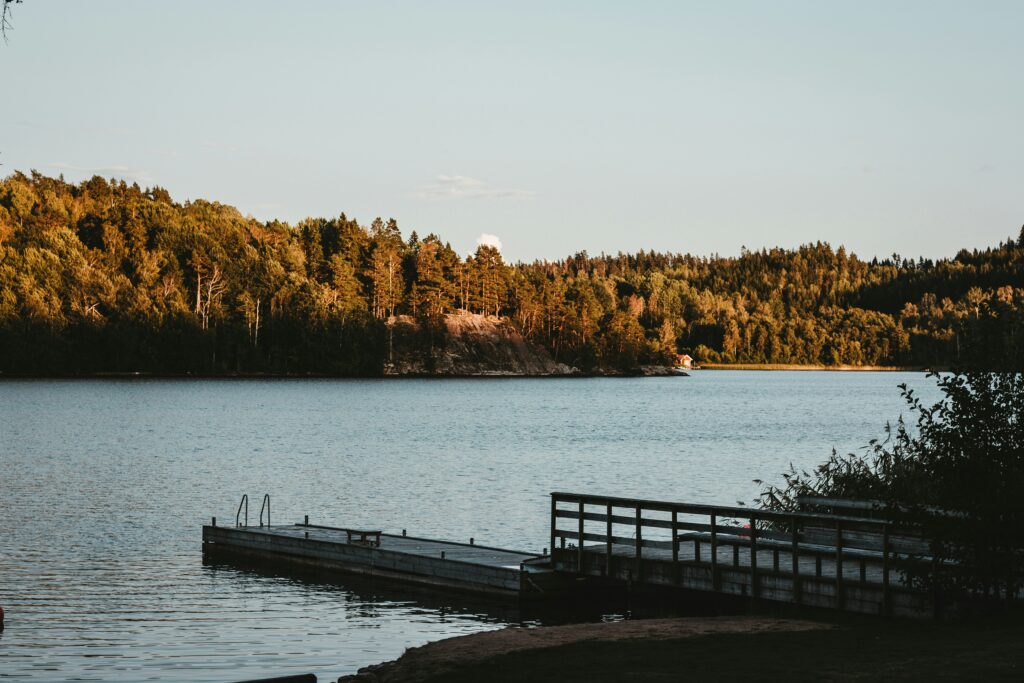
A land-centred worldview at the expense of the sea
Ehe survey commissioned by BalticWaters shows that 91 per cent of Swedes think there is a connection between the health of the sea and the health of people. Even more, 96 per cent, say they think a healthy ocean is important. Yet most of us are unaware of how our daily actions affect the health of the ocean and the resources we depend on, or how the state of the ocean affects our own lives – why is this?
We take this question to Géraldine Fauville, Associate Professor of Pedagogics at the University of Gothenburg. She explains that the answer lies partly in how we perceive and relate to the world around us.
– In research, we talk about a terrestrial bias. This means that we tend to value and focus land-based ecosystems and processes, often at the expense of our understanding and appreciation of the ocean, she explains.

Our land-centred worldview affects the way we perceive, study and manage our planet, with far-reaching consequences. This is evident, for example, when we look at what knowledge is produced and what is taught in education – but also what issues are prioritised politically.
– The curse of the ocean is that it is invisible to us. Not everyone comes into contact with the ocean, and even those who do rarely see what is happening below the surface, says Géraldine.
Moreover, many of the challenges facing the ocean are not visible to the naked eye.
– We can only see certain types of environmental problems, such as plastic in the sea or algal blooms in summer. Other changes linked to climate change or changes in ocean chemistry are completely invisible to us, she explains.
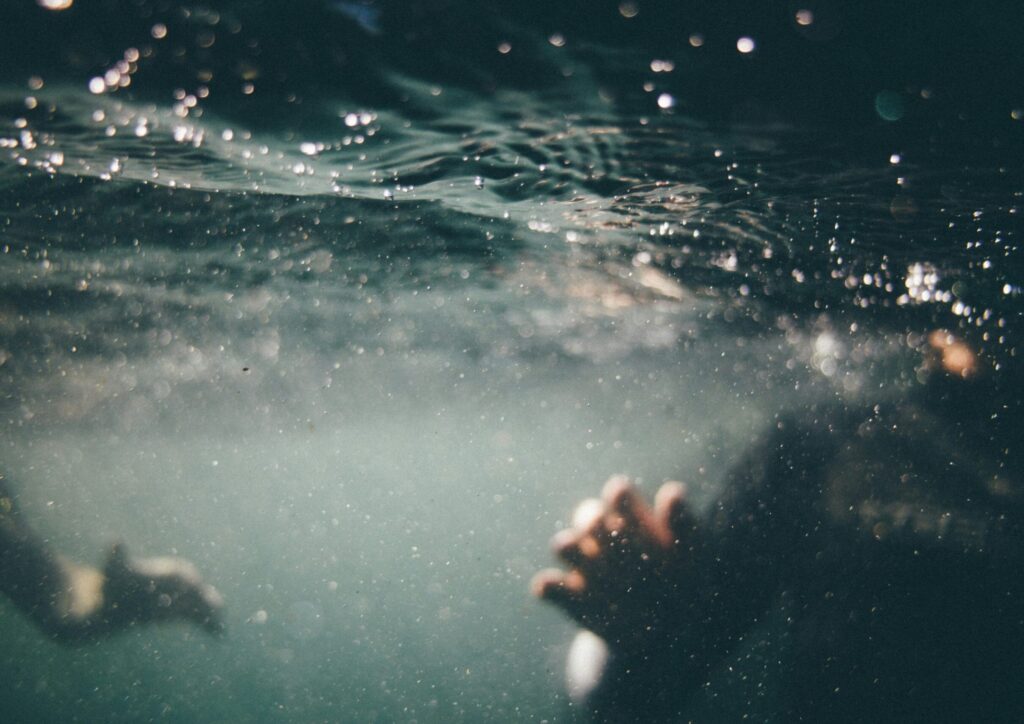
First Swedish ocean literacy survey
In 2023, the Swedish Institute for the Marine Environment, commissioned by Formas, conducted the first scientific survey of marine awareness in Sweden. The aim was to map Swedes’ level of ocean literacy, their knowledge of ocean-related issues, attitudes and behaviours towards the marine environment, and their willingness to support protective measures.
Read more about the survey and see the results here.
Knowledge is important, but not enough to create engagement
When it comes to tackling environmental problems, the focus of research has historically been on the natural sciences and how we can restore nature. This is important, but does not address the root problem, namely human behaviour. So what will it take for us to change our behaviour and commit to the ocean? One thing is clear – knowledge is not enough.
– We know from environmental research that knowledge alone does not change behaviour. For example, knowing that climate change is happening is not enough – for people to act, they need an emotional connection to the issue, explains Géraldine.
So how can you increase the emotional connection to the ocean? There is not much research on the ocean specifically, but Géraldine believes that some explanations can be found in research on the human relationship with nature.
We see that those who spend more time in nature develop a stronger emotional connection to it, which means they care more about it and are more likely to adapt their behaviour to protect it, she says.
The same logic can be applied to the ocean – without positive emotional memories connected to the ocean, people are less likely to feel responsible for caring for it.
Michael Palmgren, director of the Marine Education Centre, agrees but points out that knowledge is also needed to build an emotional connection to nature.
– When we understand how nature works, it also becomes more valuable to us. It is difficult to create a strong feeling for nature as a whole, it is too abstract. But if we learn about specific species and ecological processes, it becomes easier to feel responsible and willing to protect the marine environment, says Michael.
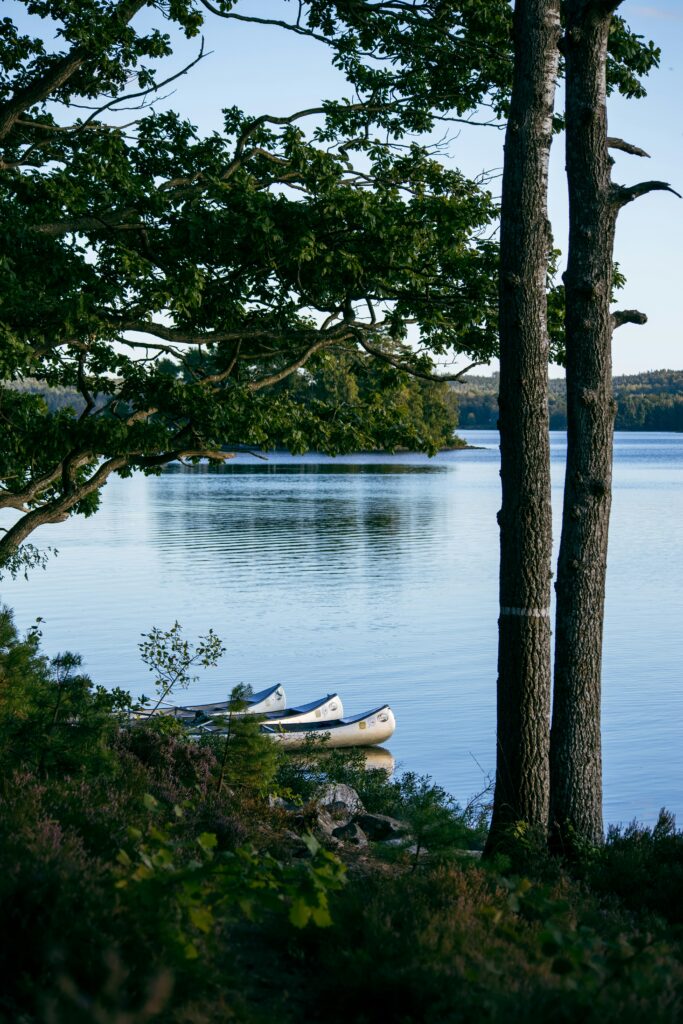
Marine issues in the curriculum
So how do you go about raising awareness of the sea and the Baltic Sea? It’s a complex question with more than one right answer, according to researcher Géraldine Fauville.
Ocean-inclusive education, starting at an early age, is crucial to changing the way society values and understands the sea in the long term. Today, curricula are often broad and vague, and in many places there is no direct mention of the sea. Géraldine and her colleagues have analysed the Swedish curriculum from the perspective of ocean visibility.

Students at Skansen Baltic Sea Science Centre. Photo: Ebba Rosendahl
– One example is the “structure and dynamics of ecosystems” goal, which today can be met without mentioning the ocean, and risks being met with our tendency to focus on land-based ecosystems, she says, noting that the ocean needs to be part of the curriculum.
Ocean literacy is not just about educating the younger generations, however. To bring about a broader change in values and behaviours, we need to find ways to reduce the physical distance to the ocean and build societal engagement.
– We are the sum of many different experiences and we need to work on making the sea more visible in different contexts – in schools, but also in other forums, says Géraldine.
Ocean literacy is also about policy change
While public knowledge, attitudes and values about the ocean form the basis of ocean literacy, it is important to remember its overarching goal: decisions about the ocean environment and resources need to be informed and responsible.
Publicising and educating a new generation takes time, and time is short. With the current negative developments, the Baltic Sea environment may collapse and we risk becoming a country surrounded by a sea without fish, like a green soup for parts of the year, where we cannot swim.
The fact that ocean literacy has already entered the Swedish political arena in connection with the UN Ocean Decade is a positive sign. But reversing the trend after decades of political neglect requires targeted efforts.
– It’s about making sure that politicians understand that we need a greener and bluer city. If they understand this, they will also make better decisions, he concludes.
– Working with young people is important to secure the future of marine environmental work. To bring about change in the near future, it is important to reach today’s decision-makers – managers, politicians and other stakeholders, says Michael Palmgren at the Marine Education Centre.

BalticWaters’ comment:
BalticWaters has a clear goal – to keep the Baltic Sea alive. In line with the principles of ocean literacy, we believe it is necessary to work on several fronts simultaneously to achieve the vision of a healthy sea full of life, both for us and future generations. To drive change, the Foundation is working on large-scale environmental projects and call programmes to promote research and increase knowledge about the Baltic Sea. In 2025, the Foundation will also establish the largest and first fish research laboratory of its kind in the Baltic Sea region. This will enable new research on Baltic Sea fish, support the release of endangered fish species, and the development of aquaculture. At the same time, we raise awareness of the Baltic Sea by spreading knowledge and driving public opinion to ensure that necessary decisions are made and actions are implemented.


